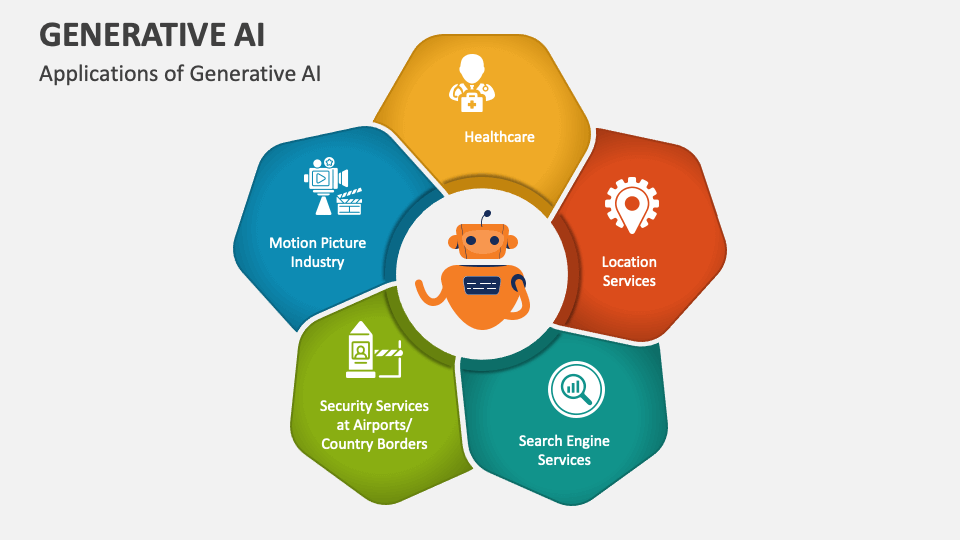Ahmedabad
(Head Office)Address : 506, 3rd EYE THREE (III), Opp. Induben Khakhrawala, Girish Cold Drink Cross Road, CG Road, Navrangpura, Ahmedabad, 380009.
Mobile : 8469231587 / 9586028957
Telephone : 079-40098991
E-mail: dics.upsc@gmail.com

ILO Report on Generative AI
News: Recently, the United Nations’ International Labour Organization (ILO) released a report on the impact of Generative AI and other platforms on jobs quantity and quality.
What is Generative AI?
• Generative AI is a branch of artificial intelligence that can create new content, such as text, images, videos, or audio, using generative models. Generative models are trained on large amounts of data and learn to mimic the patterns and structure of the data.
• Examples, Chatbots such as ChatGPT, Bard. Video generators such as Synthesia, Wav2Lip. Image generators such as DALLE, Artbreeder.
What are the Key findings of the report?
• It says that Generative AI is more likely to augment rather than destroy jobs by automating some tasks within an occupation while leaving time for other duties.
• It also says that the impact of Generative AI will vary across countries, industries, occupations and genders, depending on the current economic structure and the existing technological gap.
• Clerical support workers face the greatest risk of being affected by AI. About 25% of clerical workers’ tasks face a high exposure to generative AI, and 58% of their tasks face a medium exposure to the technology.
• Jobs such as typists, travel consultants, scribes, contact center information clerks, bank tellers, and survey and market research interviewers that could eventually be automated.
• Effects of automation are “highly gendered”, with more than double the share of women potentially affected by automation, due to their overrepresentation in clerical work.
• Generative AI technology is dependent on access and cost of broadband connectivity, as well as electricity. For example, one-third of the global population still did not have access to the internet. (2022 data)
What are the key recommendations?
• Improving job quality for care economy workers can provide decent employment and meet society’s care needs to offset the negative externalities of Generative AI in the long term.
• Ensure quality of the new jobs created as a result of technological change.
• Consultation and negotiation between employers and workers is critical for managing the transition process as it encourages redeployment and training over job loss.
What are the advantages of Generative AI?
• It can augment human creativity and productivity by providing new ideas or suggestions for various tasks, such as writing, art, design, music, software development, and more.
• It can speed up product development and innovation by generating new prototypes, designs, or solutions for different domains, such as healthcare, education, finance, entertainment, and more.
• It can enhance customer experience and engagement by generating personalized and relevant content, such as recommendations, advertisements, chatbots, or games
• It can improve the quality and diversity of the content generated by reducing errors, biases, or repetitions.
What are challenges of Generative AI?
• Bias - Generative AI relies on large amounts of data to train its models, but the data may contain biases or inaccuracies that can affect the quality and fairness of the generated outputs. For example, a generative model trained on text data that is skewed towards a certain gender, race, or ideology may produce biased or discriminatory content that reflects the same bias.
• Control - Generative models can produce outputs that are difficult to control or fine-tune to specific requirements. For example, a generative model may create fake or misleading images, videos, or audio that can be used for malicious purposes, such as spreading misinformation, impersonating someone, or violating privacy.
• Quality - Generative AI can produce realistic and coherent content, but it may also generate outputs that are low-quality, inconsistent, or irrelevant.
• Political - Generative AI can be used to create fake or misleading content that can influence public opinion, manipulate elections, or spread propaganda. For example, generative AI can create deepfakes. Deepfakes can be used to impersonate politicians, celebrities, or other influential figures and make them say or do things that they never did.
• Social - Generative AI can also affect the social and cultural aspects of human society, such as identity, expression, communication, and ethics. For example, generative AI can create content that reflects or reinforces the biases or stereotypes that exist in the data it is trained on. This can result in discrimination, exclusion, or harm to certain groups or individuals.

Address : 506, 3rd EYE THREE (III), Opp. Induben Khakhrawala, Girish Cold Drink Cross Road, CG Road, Navrangpura, Ahmedabad, 380009.
Mobile : 8469231587 / 9586028957
Telephone : 079-40098991
E-mail: dics.upsc@gmail.com
Address: A-306, The Landmark, Urjanagar-1, Opp. Spicy Street, Kudasan – Por Road, Kudasan, Gandhinagar – 382421
Mobile : 9723832444 / 9723932444
E-mail: dics.gnagar@gmail.com
Address: 2nd Floor, 9 Shivali Society, L&T Circle, opp. Ratri Bazar, Karelibaugh, Vadodara, 390018
Mobile : 9725692037 / 9725692054
E-mail: dics.vadodara@gmail.com
Address: 403, Raj Victoria, Opp. Pal Walkway, Near Galaxy Circle, Pal, Surat-394510
Mobile : 8401031583 / 8401031587
E-mail: dics.surat@gmail.com
Address: 303,305 K 158 Complex Above Magson, Sindhubhavan Road Ahmedabad-380059
Mobile : 9974751177 / 8469231587
E-mail: dicssbr@gmail.com
Address: 57/17, 2nd Floor, Old Rajinder Nagar Market, Bada Bazaar Marg, Delhi-60
Mobile : 9104830862 / 9104830865
E-mail: dics.newdelhi@gmail.com